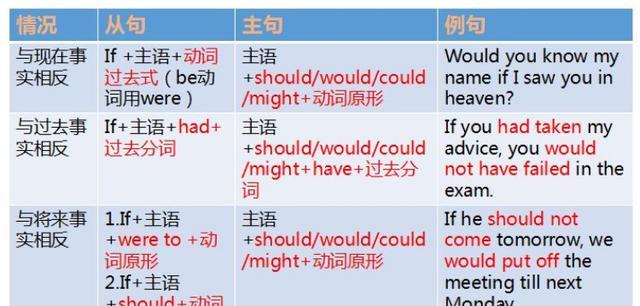虚拟语气是英语中用于表达假设、愿望、建议等情况的重要语法现象。常用的接虚拟语气的短语包括"If only"(表达强烈但可能性小的愿望),"Suppose (that)"(表达假设或猜测),"As if/As though"(表达比拟的情况),以及"Had better"(表达建议或警告)。使用这些短语时,需要注意语法的正确性和表达的准确性。

以下是几种接虚拟语气的常用短语:
If only
"If only" 是用来表达对某种事情的强烈希望,但实现可能性很小的情况。例如:
- If only I were taller, I could reach the top shelf.
- If only I had studied harder, I would have passed the exam.
这两个句子中,都使用了虚拟语气,表达了一种无法实现的愿望。
Suppose (that)
"Suppose" 用来表达一种假设或者猜测的情况,例如:
- Suppose it rains tomorrow, what will we do?
- Suppose we had more money, where would we go on vacation?
这两个句子中,都使用了虚拟语气,表达了一种未来可能发生的情况。
As if/As though
"As if" 或者 "As though" 用来表达一种比拟的情况,例如:
- He talks to me as if I were a child.
- She acted as though she knew everything about the topic.
这两个句子中,都使用了虚拟语气,表达了一种比拟的情况。
Had better
"Had better" 用来表达一种建议或者警告的情况,例如:
- You had better leave now, or you'll be late.
- We had better not go out in the storm.
这两个句子中,都使用了虚拟语气,表达了一种建议或者警告的情况。

